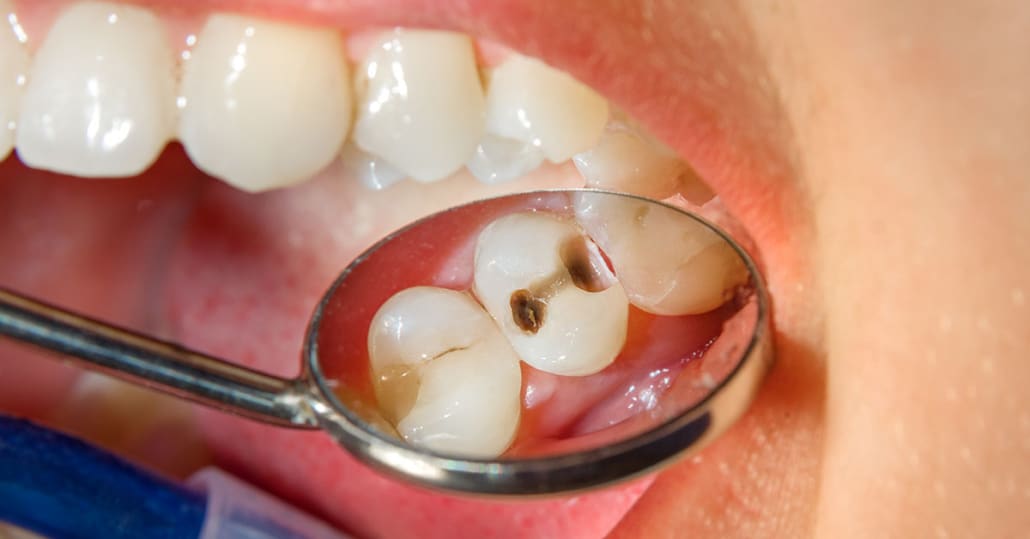Do Cavities Cause Bad Breath?
Do you remember the last time you saw your dentist?
If you follow an oral health schedule, the dentist should be on your to-do list twice a year. Even if you brush and floss daily, you may not reach every single tooth. A professional cleaning will get to all those hard-to-reach places in your mouth. Plus, your dentist can check for any issues, like cavities. Left untreated, cavities can cause bad breath and develop into long-term dental health problems.
What Is Plaque?
Plaque is a sticky coating that constantly forms on your teeth. You remove it every time you brush. The real problems begin when you skip your daily brushing. The bacteria that live in your mouth feed on the sugars left behind from takeout Chinese, energy drinks, and the like. The result? Acids can weaken and harm your tooth enamel, and cavities can develop. Not brushing or flossing gives plaque a chance to build up along the gums.
How Do Cavities Cause Bad Breath?
Can cavities cause bad breath? Yes, once this downward spiral starts, your breath doesn’t stand a chance.
Early cavities are tiny and can occur in places you can’t see no matter how wide you open your mouth in a mirror. As the tooth enamel breaks down, tooth decay begins to set in.
As bacteria feed on what’s left between your teeth, it causes little holes to develop on your teeth and releases volatile sulfur compounds (VSCs) in your mouth. VSCs cause the bad breath you share with co-workers, family, and friends.
Breaking the Cycle Once It Starts
Since your mouth can’t give you any warning signs that plaque buildup has started, you need to make sure you protect your teeth, gums, and breath. Keep your dental care a top priority by following these key steps:
- Brush and floss at least twice daily. Brush in the morning and again at night for at least two minutes so you have time to reach all sides of your teeth. Use a soft-bristle toothbrush and fluoride toothpaste.
- Limit how much carbonated soda, boozy drinks, candy, and starchy foods you eat and drink. Try to balance your diet and consider foods like celery to help clear out what could be left between teeth.
- Curb your snacking habits. Chips and cookies may sound like a good idea, but they feed bacteria.
- Use mouthwash. Mouthwash is another way to help prevent plaque from building up on your teeth. Choose one without alcohol because it can dry out your mouth. SmartMouth mouthwash eliminates sulfur gas and keeps it away for 12 hours per rinse.
- Get to know your dentist by name. Schedule a visit every six months for a full checkup and cleaning. Your dentist may suggest x-rays to make sure problems don’t lurk beneath the surface of your teeth and gums.
If your dentist finds a cavity, you may need a filling. If the decay has destroyed too much of a tooth, you’ll need a crown. If your tooth can’t be repaired, a root canal may be necessary.
Conclusion
If left untreated, cavities can contribute to bad breath. Brush, floss, and use mouthwash regularly to help prevent cavities. In addition, schedule regular checkups with your dentist for deep cleanings.
Sign up today for coupons, offers and updates!
At SmartMouth, we love saving you from bad breath, but we also love saving you money.
Reviewed By
Dr. Elizabeth Clary, D.M.D. is a member of the American Dental Association, Missouri Dental Association, Missouri Academy of Pediatric Dentistry, Chicago Dental Society, Greater St. Louis Dental Society, and Southern Illinois University School of Dental Medicine Alumni Association.



